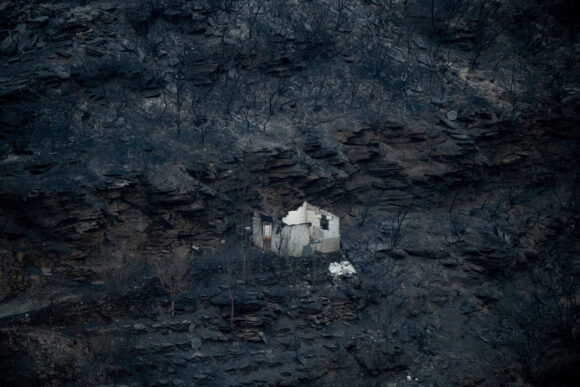Climate change made the extreme weather conditions that fueled the wildfires in Portugal and Spain about 40 times more likely to happen and the blazes themselves 30% more intense than if the world hadn’t warmed, research scientists said.
The 10-day heat wave that preceded the blazes was 3C hotter in an already overheated planet, according to a study by World Weather Attribution, a group of scientists at the Imperial College in London. The conclusions were based solely on an analysis of weather data.
“These fires are a sign of what is to come,” said Clair Barnes, a researcher at the Centre for Environmental policy at the Imperial College and a co-author of the study. “With every fraction of a degree of warming, extreme, long-lasting heat waves will continue to intensify, increasing the chance of huge wildfires like the ones that burned vast areas of the Iberian Peninsula.”
Over a million hectares (2.5 million acres) of land have burnt across Europe this summer, with Spain and Portugal representing about two thirds of the total. Almost 3% of Portugal’s land area has burnt, while in Spain, fires burned almost five times the annual average. In just one week, fires in Spain impacted more than 175,000 hectares of land.
Historically, 10-day spells of extremely hot, dry and windy conditions occur once every five centuries. In a warming world, they’re now expected to happen once every 15 years, according to the WWA research.
“Deaths and damages are preventable — every level of government must work together to adapt to climate change,” said Friederike Otto, a professor at the Imperial College and a co-author of the study. “Ultimately, though, the world needs to stop burning oil, gas and coal.”
Photograph: A damaged building among burnt fields following a wildfire in the village of San Vicente de Leira, Spain, on Thursday, Aug. 21, 2025. Photo credit: Brais Lorenzo/Bloomberg
Topics Climate Change
Was this article valuable?
Here are more articles you may enjoy.



 Insurify Starts App With ChatGPT to Allow Consumers to Shop for Insurance
Insurify Starts App With ChatGPT to Allow Consumers to Shop for Insurance  Zurich Insurance Profit Beats Estimates as CEO Eyes Beazley
Zurich Insurance Profit Beats Estimates as CEO Eyes Beazley  Munich Re Unit to Cut 1,000 Positions as AI Takes Over Jobs
Munich Re Unit to Cut 1,000 Positions as AI Takes Over Jobs  AI Claim Assistant Now Taking Auto Damage Claims Calls at Travelers
AI Claim Assistant Now Taking Auto Damage Claims Calls at Travelers 

